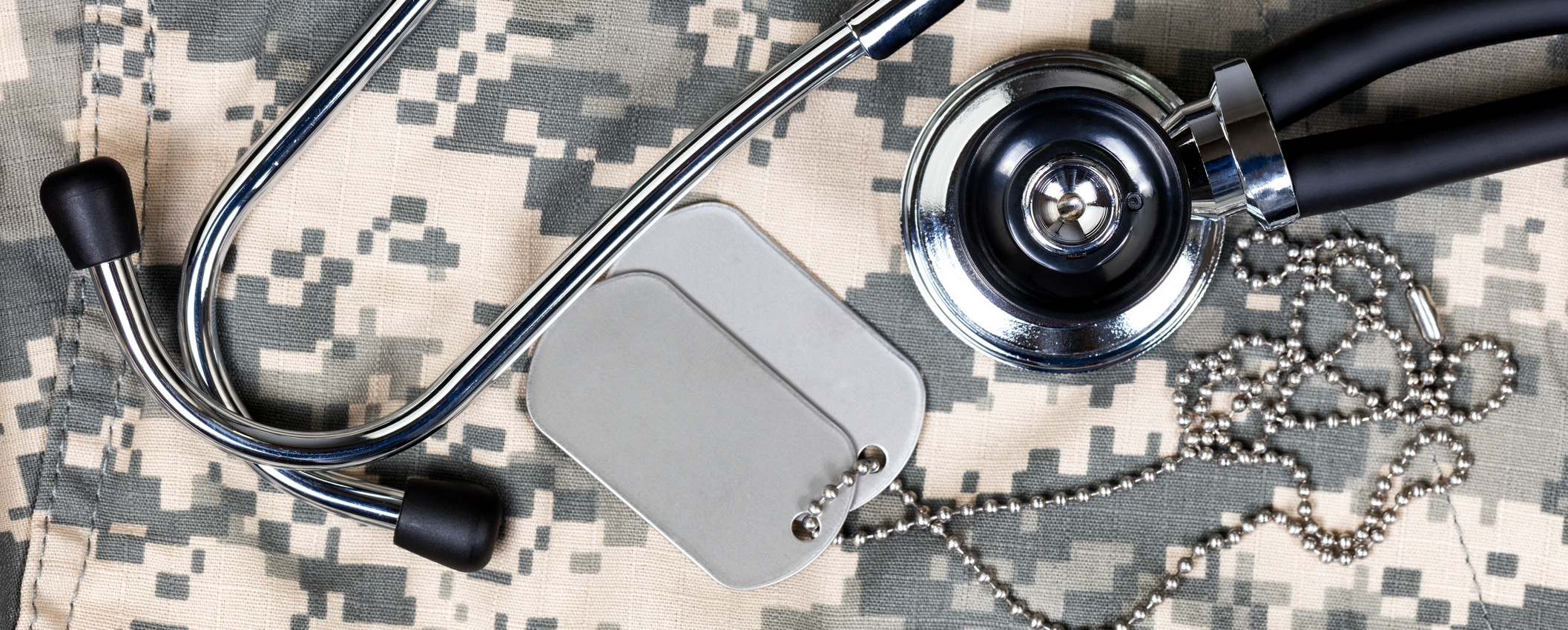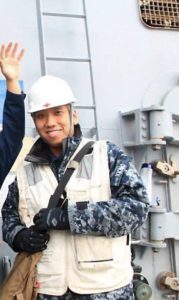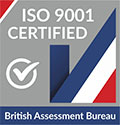Q: What inspired you to join the navy?
Bee Xiong: It was more of a decision for my family. I have a daughter and at the time that I joined, I never really gave too much thought about joining the service. But around 2008-09, the economy was not that great. I had been laid off and was going to school full time. My daughter was going to start grade school in 2009, and I had to make a decision to join the service for the benefits so my daughter could get what she needed to go to school. I joined the Navy because I also had a brother who joined the navy right out of high school, so it was more familiarity of the experience he had.
Q: What was the transition like for you to go into the medical field?
BX: I had no medical background. Initially when I joined, I was in school for law enforcement, and I wanted to stay in the law enforcement side of it. But, when I tried to get that military occupational specialty, they didn’t have any openings for me to get into, so they provided medical and a couple other options to me. I ended up choosing medical because I wanted a skill set that could better translate into the civilian sector. The transition started with going to boot camp and then off to school and training for being aCorpsman.  Â
One of the bad experiences that I remember, was when we started doing our training in lab, our instructors were showing us how to do phlebotomy, blood draw, and the first time I saw blood flow into the vacutainer, I did get a little light headed. At that time, I thought, what did I get myself into? But once I got into it, it became second nature and now it doesn’t bother me anymore.
Q: What made you feel accomplished when you ended your day?
BX: I feel accomplished by being able to help people, one instance that I will remember for a while was when I was coming on shift to the ICU and a patient had requested me to care for his wife. I didn’t know who he was but he recognized me.  I was one of the Corpsman that took care of him when he was hospitalized and he remembered me from that. This patient that I did not recognize or remember requested me because he said that I took such good care of him and he wanted me to take care of his wife the same way or better.
After that experience, it makes taking care of patients who are a little harder to deal with easier because no one goes to a clinic or hospital for fun. Â Most people who go to clinics or hospitals are sick, hurt/injured or in pain and they are probably terrified. Having that inspiration to continue to help people definitely motivates me to try to stick it out and make the medical field work for me.
Q: What was the hardest part about being in the navy?
BX: Being away from my family and the long work hours. Working at the hospital, it was a regular work/shift schedule but on the ship there were long work days. With only three of us in the medical department to care for 310-320 people on a ship, there were roughly 100 people to one medical personnel. There were some long days, lots of training, both shipboard and medical/safety training. We had almost 17 hour days, with early mornings to do training and staying late to do training along with holding sick calls for the crew, averaging at that time between 14-16 hour days.
But being away from my daughter though was the hardest thing. Everything else I can deal with, but knowing I’m away from my daughter was the hardest. When we would deploy out to sea we didn’t really have internet. If we did, it was really slow—it’s not high speed that we get here in the US or in Port. Every once in a while you get a little connection but we were limited to what we could send out, so the only way to keep in contact was through email every few days when the internet would connect.
Q: There are many inspirational men and women in the service, who has inspired you and why?
BX: I’ve met a lot of great people in my eight years in the service and that includes both the civilian and military nurses as well as doctors and leaders I met along the way. A lot of them have mentored me and given me the tools to be successful not only in the service, but outside in the civilian world as well. They all are very important to me and I still keep in touch with quite a few of them. I’ve learned lessons from each person along the way, and when I was getting out of the service, I received a lot of support from my leaders.
Q: What was your transition like when returning to civilian life?
BX: The transition to civilian life was pretty smooth, my last duty station, I was working in a clinic so it already felt like I  was working a nine-to-five job. A couple of things that threw me off right away were the uniforms and how people called or said my name.  Once I separated from the Navy, it was one of those things where I didn’t have to put on a uniform anymore. But now before work I’d have to pick and choose what to wear for the day, and still seeing my uniform hanging in the closet and not putting it on, makes me feel like I am missing something. I also had to get used to how we speak to each other in the civilian side. In the military, I called everyone by their rank and last name and the officers as sir or ma’am, so the first time I heard someone call me by my first name in a work setting it took me some time to get used to. It still feels weird. Some things I’m still trying to adapt to, but for the most part, the transition was easy.
Q: What advice would you give to someone recently joining civilian life?
BX: Have a plan, but also have a backup plan to your original plan. I know a lot of people who transition out of the service and most of the time they don’t have a plan, and those that do have a plan don’t have a back-up plan to their initial plan. It’s easy to think you will be able to get a job easily when you get out of the service or your plans are to go to school, but a lot of times, it doesn’t work out that way. Having a plan can make things a little easier, and having a back-up plan to the original plan will definitely help. I used to tell all my junior guys to have a plan, then a back-up plan and also a back-up plan to your back-up plan and then you’ll be ready to meet every obstacle.
My original plan was to go on a European backpacking trip with my buddy but that didn’t happen, so I went home to Minnesota. The back-up plan to the trip was to relax for a couple of months and then get back into the workforce.  I was in Minnesota with my family for about three months when I started searching for opportunities, and I was fortunate enough to have found Remote Medical International. I decided to apply for the Medical Screening Coordinator position in October 2017 and I started in November 2017.
Q: What do you enjoy most about working in medical screening?
BX: I said this from the very beginning, the team that I work with is amazing and that makes coming to work a lot more enjoyable. The medical screening portion of the job relates to what I did in the military as well and the requirements that are needed for a lot of our candidates who are getting ready to deploy overseas.
Q: How can employers better support Veterans?
BX: There are many ways employers can support their Veterans, one of the ways they can support is by being accommodating to the Veterans work schedule. Because Veterans could have multiple types of medical appointments, it is necessary for them to be able to go complete their necessary appointment types at any given time. It would be helpful if the current employers supported the Veterans by letting him or her take time off to go complete the appointments without using their PTO. Â
Q: What does Veterans Day mean to you?
BX: To me, Veterans Day is a time to appreciate all the Veterans, and everything that they have done for their families and their country. It is also a day to acknowledge all the sacrifices that they have made. On this day, I would want everyone to appreciate and thank all the Veterans for their services.



